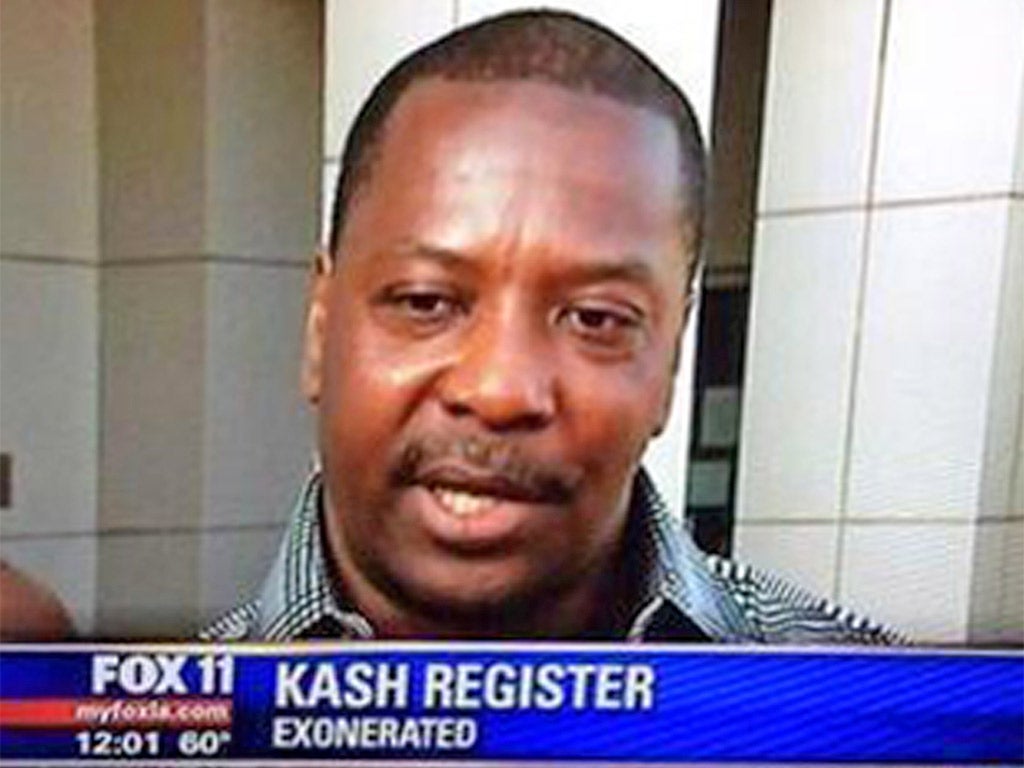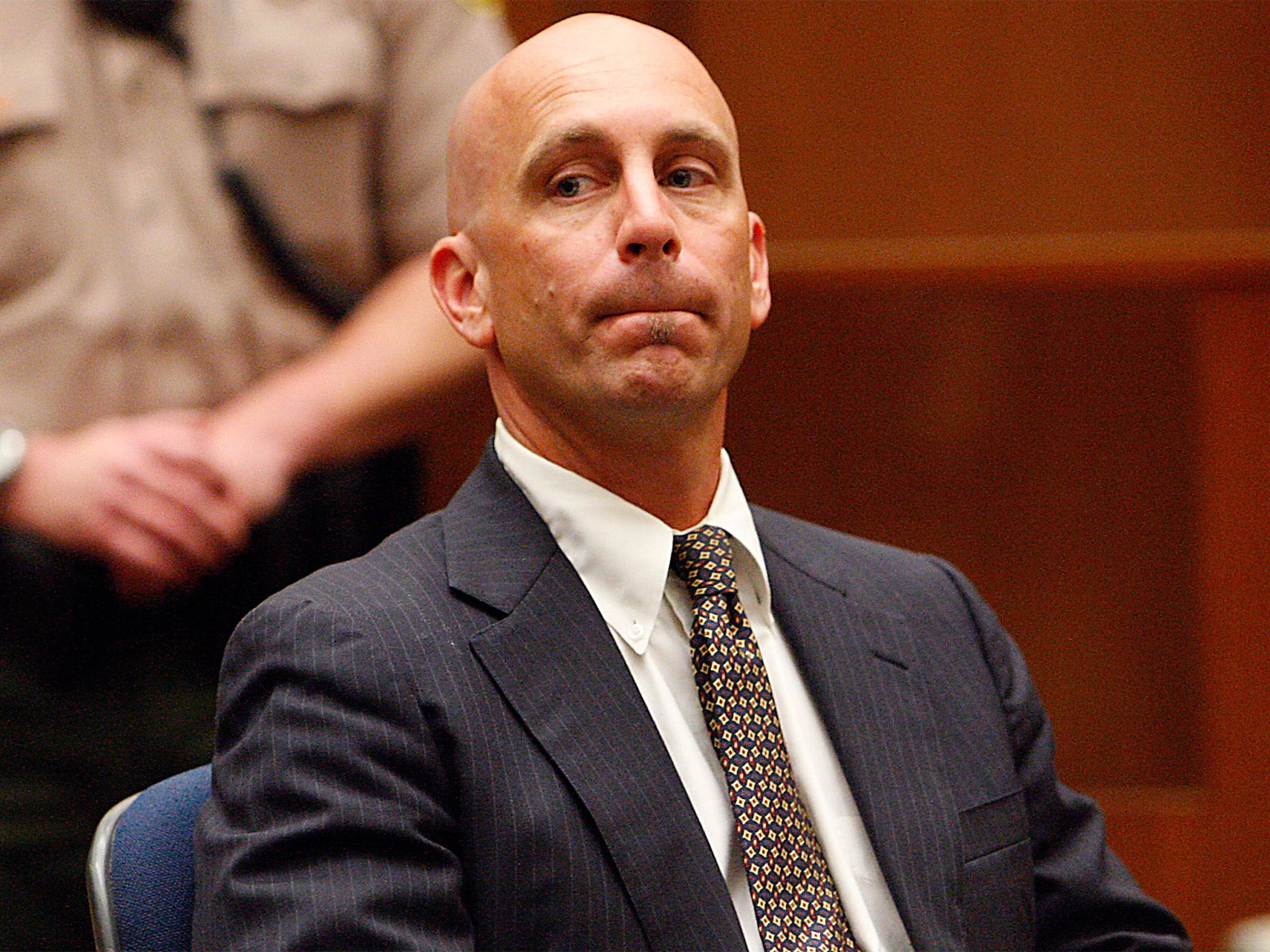LA police pays out $24m to two men wrongly jailed for decades for murder
Kash Register and Bruce Lisker were both teenagers when convicted and claim the LAPD ignored any evidence that pointed to their innocence

Your support helps us to tell the story
From reproductive rights to climate change to Big Tech, The Independent is on the ground when the story is developing. Whether it's investigating the financials of Elon Musk's pro-Trump PAC or producing our latest documentary, 'The A Word', which shines a light on the American women fighting for reproductive rights, we know how important it is to parse out the facts from the messaging.
At such a critical moment in US history, we need reporters on the ground. Your donation allows us to keep sending journalists to speak to both sides of the story.
The Independent is trusted by Americans across the entire political spectrum. And unlike many other quality news outlets, we choose not to lock Americans out of our reporting and analysis with paywalls. We believe quality journalism should be available to everyone, paid for by those who can afford it.
Your support makes all the difference.The two civil rights lawsuits were unrelated but shared several similarities. Both men were teenagers when they were arrested. And both contended that Los Angeles Police Department officers had contrived evidence of their guilt and ignored any that pointed to their innocence.
Now, two men who both spent decades behind bars for murder have been awarded a total of $24m (£17m) by the city of Los Angeles, after it was found they had been wrongfully convicted on the basis of flawed police investigations.
Kash Register, who served 34 years in prison for the armed robbery and murder of an elderly man, was awarded $16.7m – which his lawyers say is the largest such settlement in LA history. In its closed-door session, the LA City Council also awarded a settlement of $7.6m to Bruce Lisker, who was jailed for the 1983 murder of his mother, but released in 2009 after a Los Angeles Times investigation cast doubt on his conviction.
Mr Lisker, 50, claimed he was “framed by the LAPD”. Mr Register, 55, was arrested in 1979 for the murder of 78-year-old Jack Sasson, who was shot five times during an armed robbery and died three weeks later. None of the fingerprints at the crime scene matched those of Mr Register, whose girlfriend testified that he was with her at the time of the shooting. He was convicted on the strength of eyewitness testimony from 19-year-old Brenda Anderson, who said she had seen him running from the scene and picked him from a police line-up.

Mr Register’s lawyers alleged that police had threatened to prosecute Ms Anderson for credit card forgery if she failed to identify a suspect. At the time, her sisters told detectives that Ms Anderson had lied in her account, but were ignored. Mr Register’s lawyers and students from LA’s Loyola law school took up his case again decades later, after one of Ms Anderson’s sisters learned that he was still in prison and contacted them. He was freed in November 2013.
“I can’t get these 34 years back but I hope my case can help make things better for others, through improving the way the police get identifications,” he said in a statement.
The settlements come as police forces in the US face questions about their tactics and rectitude. Last year, the LA County District Attorney set up a unit to tackle credible claims of innocence from prisoners. According to the LA Times, city lawyers recommended awarding settlements to Mr Register and Mr Lisker, rather than risk the even larger financial penalties that might have resulted had their lawsuits been fought in court.
Mr Lisker spent 26 years in jail for the murder of his mother, Dorka, who was stabbed to death at their home in 1983, when he was 17. A troubled teenager he claimed he broke into the house to help her after seeing her lying in the hall. Police claimed he could not have seen his mother’s body from that angle, and built their case against him using bloody shoeprints at the scene, which they insisted came just from Mr Lisker.
However, when the newspaper re-examined his case in 2005, it found glaring omissions in the police inquiry. At a later federal hearing, experts said he could have seen his mother from outside the house and one of the shoeprints was not made by his shoes. Mr Lisker, who has married since his release in 2009, said: “After more than 30 years of fighting to establish my innocence and to vindicate my rights, this painful chapter of my life has been brought to a close.”
Join our commenting forum
Join thought-provoking conversations, follow other Independent readers and see their replies
Comments